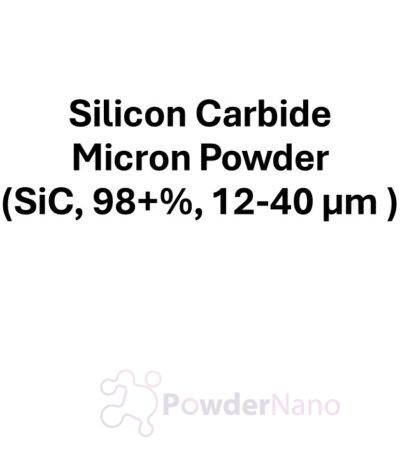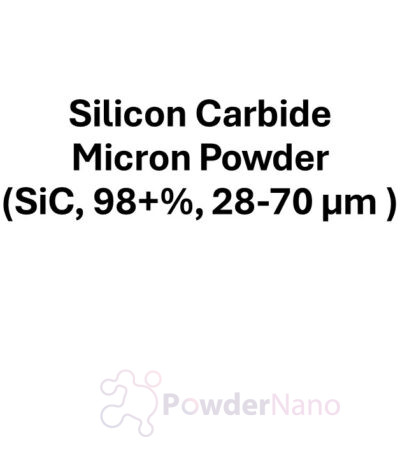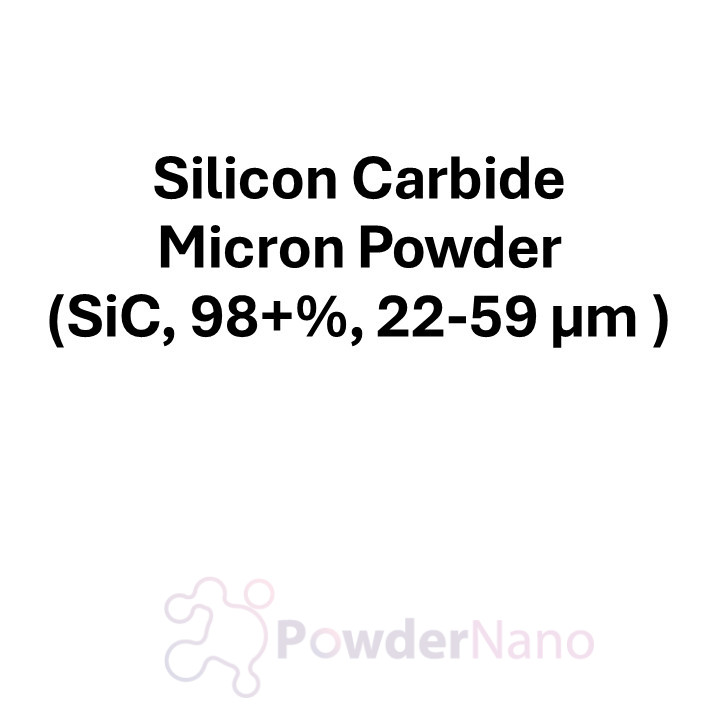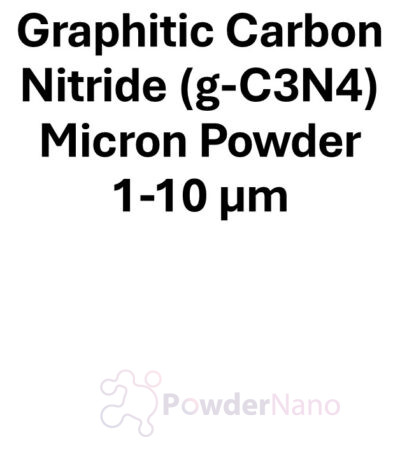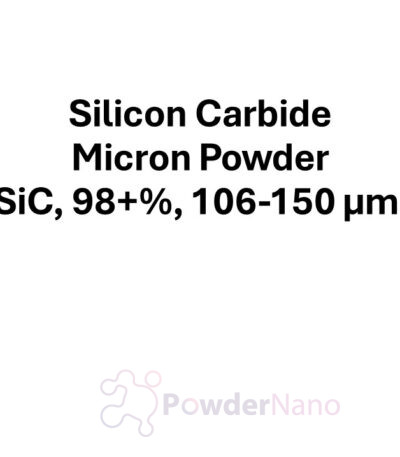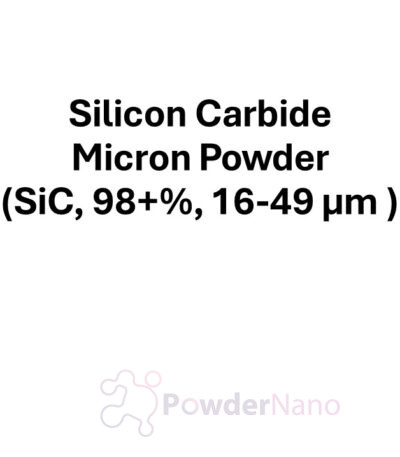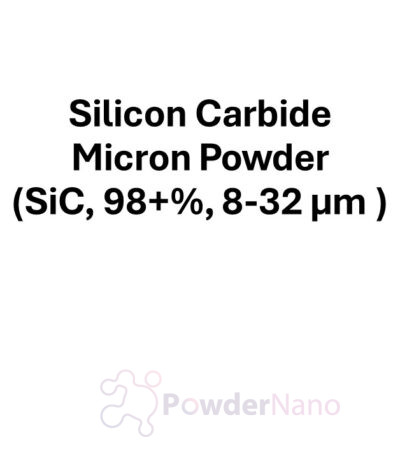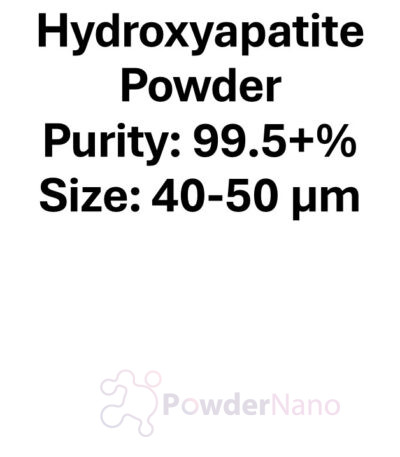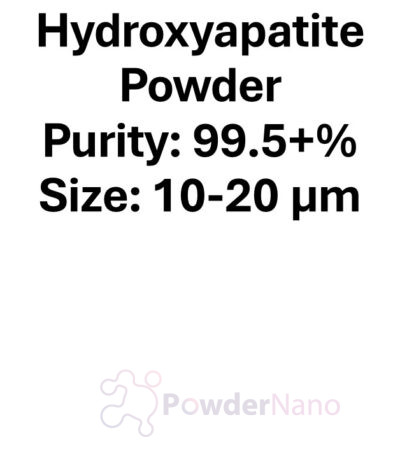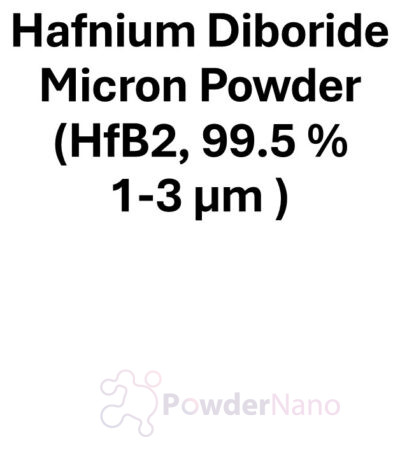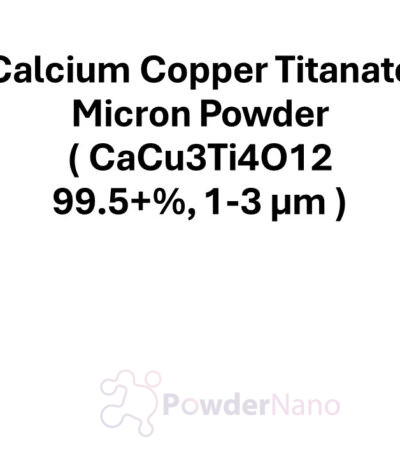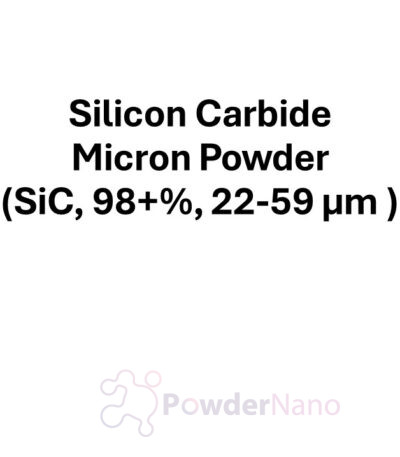Silicon Carbide Micron Powder (SiC, 98+%, 22-59 µm)
Technical Specifications:
- Material: Silicon Carbide (SiC)
- Purity: 98% or higher
- Particle Size: 22-59 µm (microns)
- Shape: Typically irregular or angular, depending on the manufacturing process
- Density: Approximately 3.21 g/cm³
- Melting Point: Approximately 2,700°C (4,892°F)
- Boiling Point: Sublimes at approximately 3,200°C (5,792°F)
- Chemical Composition:
- Silicon (Si): ~70%
- Carbon (C): ~30%
Applications:
- Abrasive Materials:
- Silicon Carbide is widely used as an abrasive in the production of grinding wheels, cutting tools, and polishing pads due to its extreme hardness. The 22-59 µm micron powder is used for coarse grinding and rough finishing applications, particularly for materials like metals, ceramics, stone, and composites.
- This micron powder is ideal for heavy-duty grinding, surface preparation, and abrasive blasting applications in industries such as metalworking, construction, and automotive.
- Refractory Materials:
- Silicon Carbide is used in the manufacture of refractory materials that need to withstand extreme temperatures and thermal shock. The micron powder is incorporated into furnace linings, heat shields, nozzles, and kilns for industries such as metal casting, glass manufacturing, and ceramics.
- SiC is ideal for high-temperature applications due to its high thermal stability and resistance to oxidation, making it effective in refractory applications that are exposed to high heat and corrosive environments.
- Ceramic Materials:
- Silicon Carbide is used to improve the mechanical properties of ceramic materials. The micron powder is added to ceramic matrix composites (CMCs) to increase strength, toughness, and wear resistance. These composites are used in aerospace, automotive, and industrial applications such as brakes, bearings, cutting tools, and engine components.
- SiC ceramics provide excellent fracture toughness, thermal stability, and wear resistance in demanding environments.
- Thermal Management:
- Silicon Carbide is used in thermal management applications due to its high thermal conductivity and low thermal expansion coefficient. The micron powder is used in heat sinks, thermal interface materials, radiators, and cooling systems to efficiently dissipate heat from high-power devices such as LEDs, semiconductors, and power electronics.
- It plays a key role in thermal regulation of electronics that need to maintain optimal operating temperatures in high-power applications.
- Power Electronics:
- SiC is used in power electronics such as power MOSFETs, diodes, and transistors due to its wide bandgap and high breakdown voltage. The 22-59 µm powder is used in the production of semiconductors for high-power and high-frequency applications in electric vehicles (EVs), solar inverters, motor drives, and industrial power systems.
- SiC devices are capable of operating at higher voltages, frequencies, and temperatures than traditional silicon devices, making them ideal for high-efficiency power electronics.
- Wear-Resistant Coatings:
- Due to its extreme hardness and wear resistance, Silicon Carbide is used in coatings for components exposed to abrasion, erosion, or high friction. The 22-59 µm powder is used in thermal spraying, plasma spraying, or PVD/CVD processes to create wear-resistant coatings for cutting tools, machinery parts, and engine components.
- These coatings are used in industries such as mining, automotive, heavy machinery, and oil and gas to improve the durability and service life of components operating in harsh environments.
- Catalyst Supports:
- Silicon Carbide is used as a catalyst support due to its high surface area, thermal stability, and resistance to corrosion. The micron powder is used in catalytic reactors, catalytic converters, and fuel cells to support catalysts in processes such as hydrogenation, methanation, and oxidation reactions.
- SiC supports provide high thermal conductivity and enhance the efficiency of catalysts in chemical manufacturing, automobile emissions control, and energy production.
- Nuclear Applications:
- Silicon Carbide is used in the nuclear industry for reactor components such as fuel cladding, control rods, and reactor shielding. The material’s radiation resistance and thermal stability make it ideal for use in nuclear reactors that need to withstand high radiation and extreme temperatures.
- SiC’s durability makes it suitable for high-temperature gas-cooled reactors and fusion reactors, providing reliable performance in nuclear energy generation.
- Supercapacitors and Energy Storage:
- Silicon Carbide is used in supercapacitors and energy storage devices to enhance energy density, power density, and cycle life. The micron powder is used in electrode materials for high-capacity energy storage systems, such as those used in electric vehicles, renewable energy storage, and high-power backup systems.
- SiC is particularly effective in high-power storage devices where rapid charge/discharge cycles and long operational life are required.
- Research and Development:
- SiC micron powder is widely used in research and development to explore new applications in energy systems, materials science, and nanotechnology. Researchers use SiC to develop advanced materials for high-performance electronics, energy storage devices, nanocomposites, and wear-resistant applications.
- The micron powder form of SiC allows for the development of cutting-edge technologies in semiconductors, high-temperature materials, and advanced ceramics for industries such as automotive, aerospace, electronics, and energy sectors.
Silicon Carbide Micron Powder (SiC, 98+%, 22-59 µm) is a high-performance material with exceptional hardness, thermal conductivity, oxidation resistance, and electrochemical properties. It is widely used in abrasives, semiconductor devices, thermal management, wear-resistant coatings, high-temperature applications, catalysis, and energy storage systems. The micron powder form ensures high surface area, making it ideal for composite reinforcement, electrode materials, and high-performance coatings. SiC’s unique properties make it indispensable for cutting-edge applications across industries requiring durability, efficiency, and reliability under extreme conditions.
